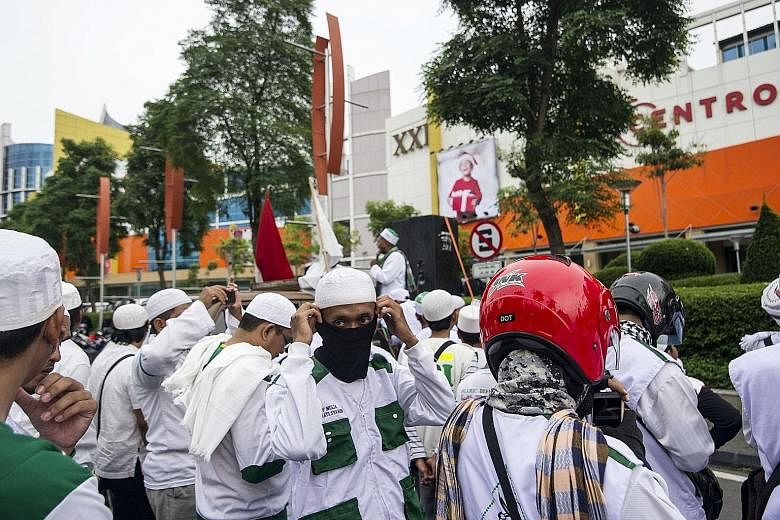JAKARTA • In a move that reflects the growing influence of conservative groups in Indonesia, national police chief Tito Karnavian has said he will send a liaison officer to the Indonesian Ulema Council (MUI) to ensure the council's fatwas do not disrupt religious harmony.
The police chief is under public pressure to keep hardline groups under control, following reports that some groups have been visiting business establishments to inform them about a recent MUI fatwa - or religious edict - banning Muslims from wearing Christmas attire.
In Surabaya, East Java, the local police decided to escort members of the Islamic Defenders Front (FPI) when they visited local malls to publicise MUI's edict. The police said the move was necessary to prevent possible public disturbances.
The move, however, has drawn strong rebuke from the public, who accused the police of bowing down to MUI and FPI.
Speaking at the office of the Coordinating Political, Legal and Security Affairs Minister on Tuesday, General Tito said MUI should communicate with the police force before issuing any edict that could potentially affect public order. "Don't issue an edict before coordinating with us. (The national police) have the authority to enforce laws. We will see whether an edict is positive or not, and if it is, we will assist to publicise it," he said.
He argued that the MUI edict on Christmas attire was confusing and could be abused by irresponsible parties. "If confusing edicts circulate in society, there will be (irresponsible) people who will carry out actions (based on the edicts). People wearing Santa Claus clothing can be affected too," Gen Tito said.
MUI chairman Ma'ruf Amin denied that the council's fatwa had caused a commotion in society.
He argued that the council had received reports about Muslims being forced to wear Christmas garb and that the fatwa was meant to protect religious harmony.
Mr Ma'ruf, who visited Gen Tito's residence in South Jakarta on Tuesday night to discuss the edict, said MUI and the police had reached an agreement that publicity for the edict would be carried out by the MUI chapters at the local level and by the local police.
"We cannot allow any crackdown to be carried out by certain groups. (They) have nothing to do with the MUI edict because only the police can do it (enforce the law)," Mr Ma'ruf said, adding that mass organisations that want to undertake publicity should do it peacefully and without intimidation.
The police also asserted that members of mass organisations are not law enforcers who can conduct raids. Gen Tito made it clear that the national police would punish any group or person who breaks the law.
JAKARTA POST/ASIA NEWS NETWORK

